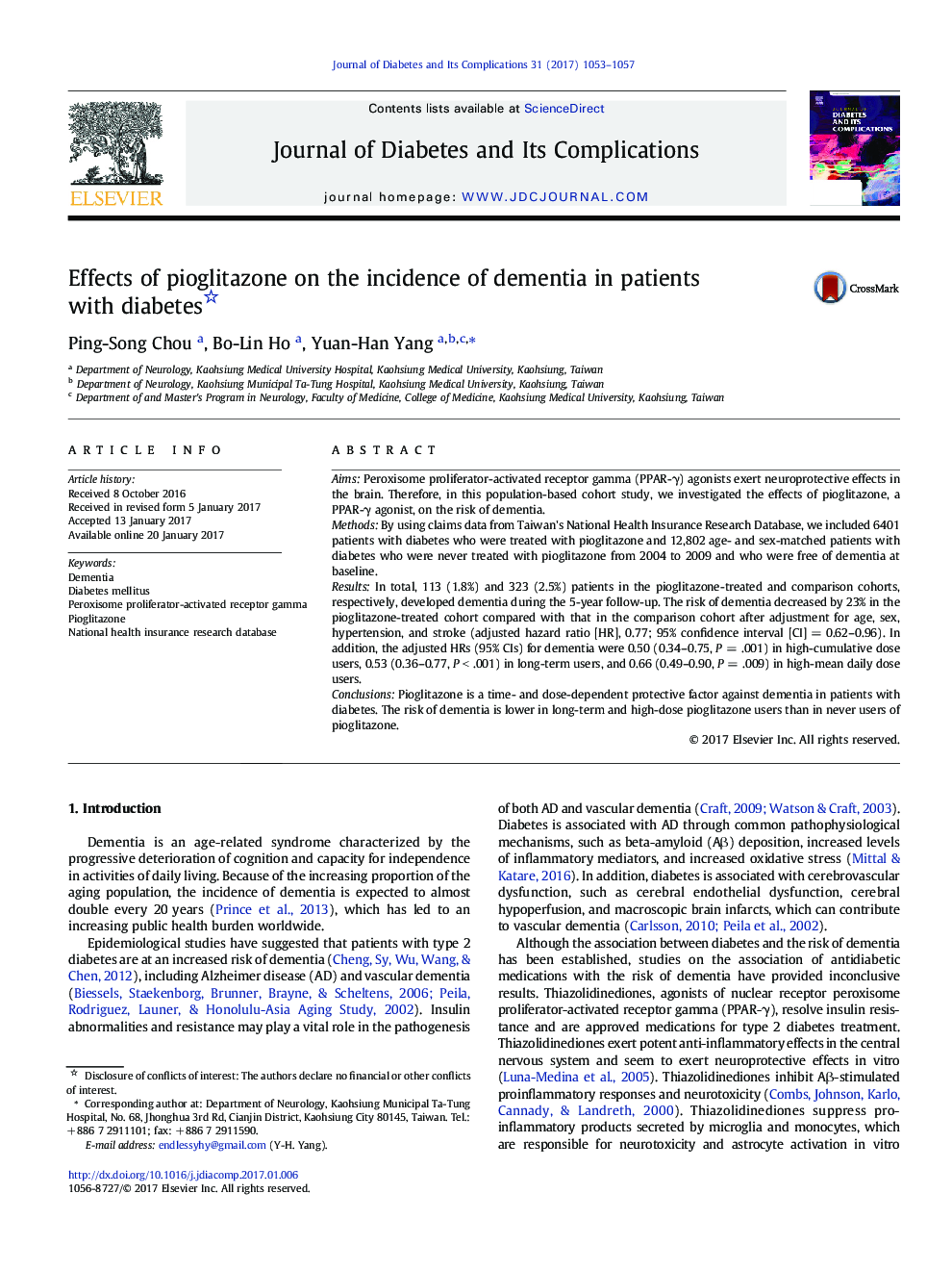| Article ID | Journal | Published Year | Pages | File Type |
|---|---|---|---|---|
| 5588178 | Journal of Diabetes and its Complications | 2017 | 5 Pages |
AimsPeroxisome proliferator-activated receptor gamma (PPAR-γ) agonists exert neuroprotective effects in the brain. Therefore, in this population-based cohort study, we investigated the effects of pioglitazone, a PPAR-γ agonist, on the risk of dementia.MethodsBy using claims data from Taiwan's National Health Insurance Research Database, we included 6401 patients with diabetes who were treated with pioglitazone and 12,802 age- and sex-matched patients with diabetes who were never treated with pioglitazone from 2004 to 2009 and who were free of dementia at baseline.ResultsIn total, 113 (1.8%) and 323 (2.5%) patients in the pioglitazone-treated and comparison cohorts, respectively, developed dementia during the 5-year follow-up. The risk of dementia decreased by 23% in the pioglitazone-treated cohort compared with that in the comparison cohort after adjustment for age, sex, hypertension, and stroke (adjusted hazard ratio [HR], 0.77; 95% confidence interval [CI] = 0.62-0.96). In addition, the adjusted HRs (95% CIs) for dementia were 0.50 (0.34-0.75, P = .001) in high-cumulative dose users, 0.53 (0.36-0.77, P < .001) in long-term users, and 0.66 (0.49-0.90, P = .009) in high-mean daily dose users.ConclusionsPioglitazone is a time- and dose-dependent protective factor against dementia in patients with diabetes. The risk of dementia is lower in long-term and high-dose pioglitazone users than in never users of pioglitazone.
